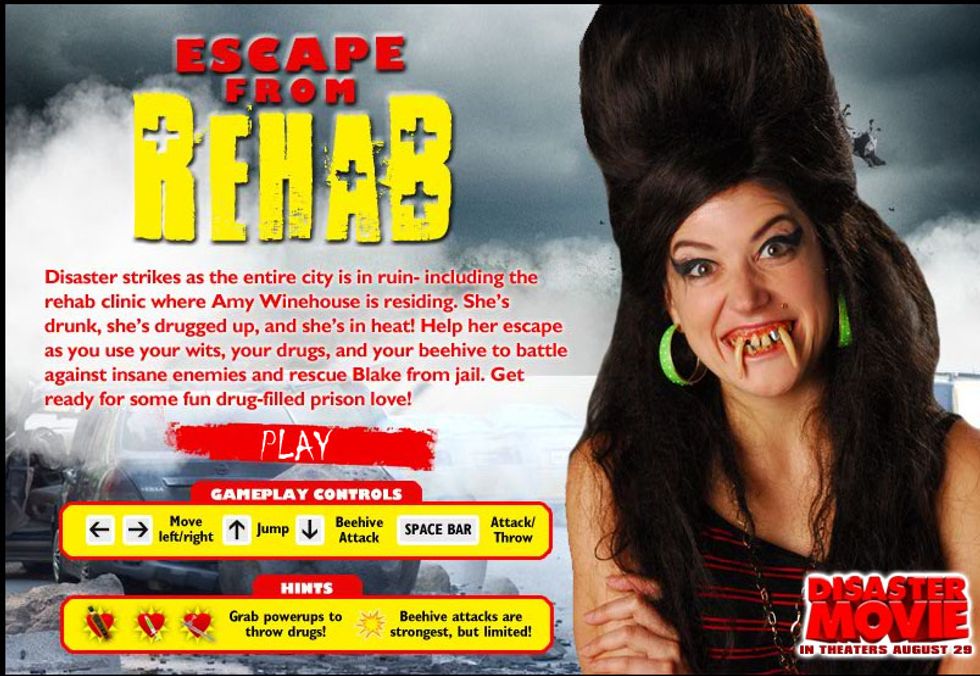The date was July 23, 2011.
I was at a church event on a small college campus. I was walking to the performance hall for worship. That’s when I got the news that Amy Winehouse had died.
I remember it so clearly, though maybe I shouldn’t. At the time, I only knew one song of hers, and didn’t even really consider myself a fan; I loved “Rehab”, but probably not any more than the next person. However, when I found out that she had died, the news wrecked me. I remember crying through that worship service, and not really understanding why I was so emotional over a celebrity to whom I had never paid much attention. All I really knew about her was that she struggled with drugs, alcohol, and an eating disorder. Years later, it would dawn on me that beyond being heartbroken at such an obvious talent being lost, I was reacting to the immense amount of negativity that had come immediately following her death. It took all of a few seconds before people began making jokes about her.
“What’s the difference between February and Amy Winehouse? February makes it to 28.”
“How do men pick up Amy Winehouse? With a stretcher.”
I was at a church event – supposedly a place where people stop judging and start loving – and hearing awful comments being made at the expense of a woman who was so tragically lost that she died at the age of 27.
Amy Winehouse was a victim of a society which feels entitled to every aspect of a celebrity’s being. That’s why people feel no remorse when they seek out a leaked picture of a woman’s body, so long as she is famous. We're all too familiar with the rhetoric: "She's practically naked in one of her movies; what's the difference?" If it’s Jennifer Lawrence or Kate Upton, people see no harm in sharing the pictures with all their friends. This same entitlement is what drove Amy Winehouse to make the destructive choices that she did. And when she was at her lowest, in desperate need of help, rather than giving her the space that any human would need, we only pushed harder.
When the film “Bully” was released in 2011, it sparked nation-wide conversations about how harmful bullying is, and how there is a need to address these issues with zero-tolerance policies. News headlines broke about countless victims who had died as a result of bullying. No one questions who is to blame in those stories. While bullying is usually seen to be a juvenile practice, there are parallels in the way that the media and the general public treat celebrities. Jimmy Kimmel’s “Celebrities Read Mean Tweets” series highlights some of the most direct ways in which people bully celebrities, and often this includes verbal attacks, even threats. Why is it that we as a culture feel like our incessant and unwavering bullying of celebrities is any different than that of schoolchildren? What does it say about our moral code if we think bullying in any capacity is okay, just so long as the rest of society seems to be in on it?
The fact of the matter is that we justify our deplorable actions against a human being by using the term “celebrity”. This word seems to put people in an untouchable category; we feel that because we do not have personal, direct contact with these people, our actions and words are harmless. Amy Winehouse is proof that the opposite is true. If we want to pride ourselves on these anti-bullying messages, then that needs to hold up in all areas of our life. We don’t get to decide that a celebrity’s life is less important than the life of a high-school student, and we certainly don’t get to be on the moral high ground if the best we can do to support someone is make jokes at their expense, even just moments after their death.
While it is not our responsibility to take all the blame for these tragic events, we cannot plead total innocence. Ultimately, we cannot control the actions of others. But if bullying and other forms of harassment have already been linked to psychological and emotional trauma, why aren’t people more outraged when this leads directly to the death of another human being? Was Amy Winehouse exempt from human compassion simply because she was a household name? Many factors contributed to her emotional and mental well-being or lack thereof, but in the midst of it all, the constant ridicule from all sides (and very loudly from the general public) wasn't doing her any favors.
I think it’s time that people, and especially the media, take greater care in the way they engage with celebrities. The way we treat them is often exploitative, dehumanizing, and – at its core – a form of bullying.




















